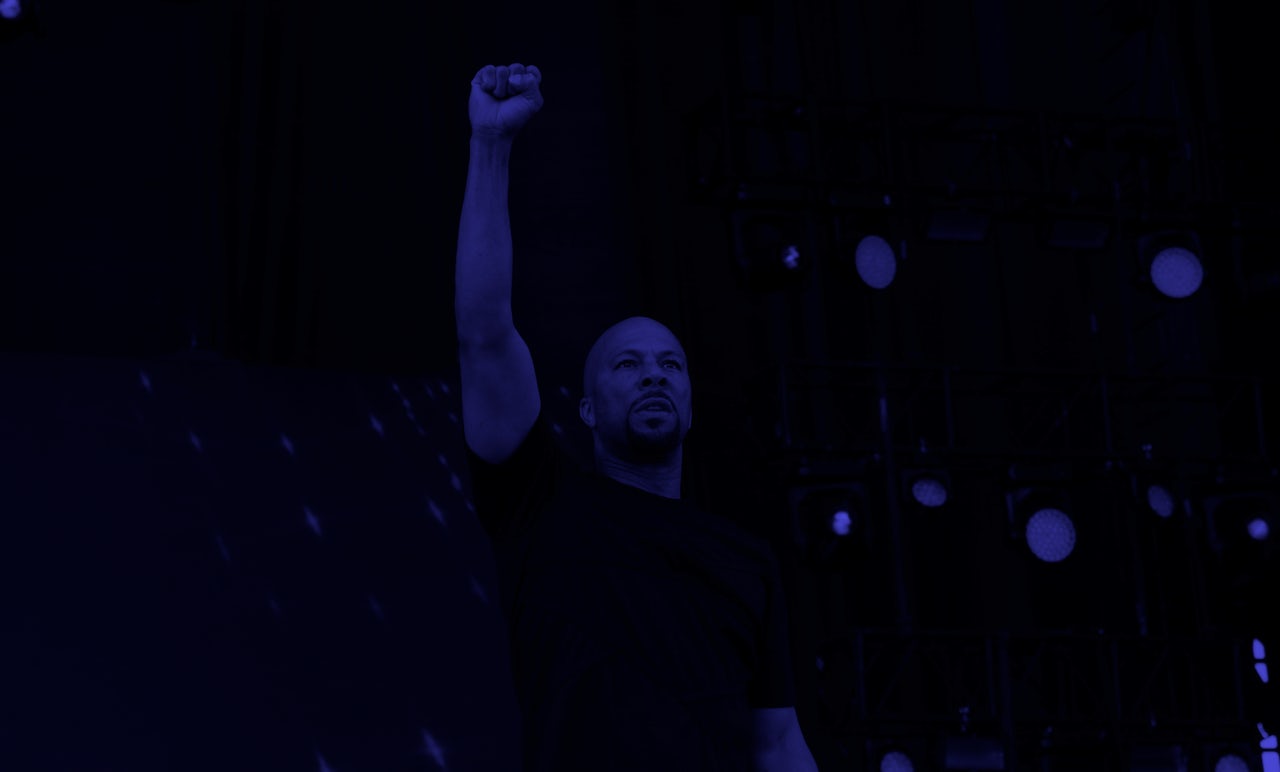Today, 8,000 Starbucks locations across the country are closing early for their much-publicized staff anti-racial bias training. Set up in response to the call to police by a Philadelphia branch worker that resulted in the arrests of two black men who were in the store waiting for a friend, the training sessions have been subject to weeks of conversation and speculation about everything, from their potential efficacy to who would be leading the efforts. However, for anyone with major doubts about the chain’s potential to change, arguably the most interesting part of the whole debacle is that room temperature rapper Common is one of the narrators (and de-facto spokespeople) for the chain’s anti-bias training videos.
As a lifelong Common skeptic, I couldn’t help but roll my eyes at the news that the coffee giant chose him to be the most recognizable face in its anti-bias training efforts. Sure, conservatives frothed at the mouth when Obama invited Common to perform at the White House in 2011, but on the whole the rapper is a Mister Rogers-type figure in a genre that is otherwise scapegoated for encouraging violence. He has long been hailed as a conscious rapper, a label that can too easily be used to dismiss the substance of the genre as a whole, not to mention artists who present their social and political commentary in less White House-friendly ways. And over the years Common’s public image has hewn to a sort of corniness, a vision many hip-hop fans share. “If racism ends how will Common eat?” said one particularly apt tweet.
There’s no question that if you’re looking to hire a big name in entertainment with a low likelihood of being milkshake ducked, Common is an obvious if not laughably cliche choice. But driving past Starbucks today I couldn’t help but think, first, “I could really go for a mediocre latte right now” and then, “Common???? Like...why?????” Is Common the most qualified, anti-racist activist Starbucks could find? Did Howard Schultz go to Tyler Perry for a recommendation? Was Kimberlé Crenshaw busy or simply not famous enough?
Common isn’t the worst choice as far as celebrities go. He’s never had to tweet out an apology written in the Notes app, which makes him a saint by corporate standards. But like the nice middle school music teacher who doubles as the guidance counselor, Common’s relentless air of righteousness is as annoying as it is perplexing. The media regularly appeals to Common to be a bridge-building voice of hip-hop’s potential for good for their white audiences. Just take his 2015 appearance on the Daily Show in which he encouraged black people to “forget about the past as much as we can” and move forward from racism, adding “I don’t even have to keep bringing [past American institutionalized racism] up. It’s like being in a relationship and continuing to bring up the person’s issues.”
He was on the show to promote his Selma soundtrack hit “Glory,” itself a stunning example of how Common’s music career has been dominated by the same “inspirational” platitudes that make up the bulk of his insufferably motivational Twitter account. To his credit he has founded his own charity, and made benefit shows his bread and butter. But unlike other artists who engage in philanthropy and activism as well, Common has made social justice righteousness and preaching a main facet of his public image.
Know Your Worth. Then Double It, Add Tax, Add Shipping + Handling, and Round Up.
— COMMON (@common) May 28, 2018
For years Common has been held up as the embodiment of black respectability in rap, often being asked about his ultra-healthy vegetarian diet and social justice stances as much as he is asked about his music. And with this latest role with Starbucks it seems he’s still more than happy to uncritically lean into that image for his own benefit. It’s neither right nor wrong, and the fairness of my annoyance is beside the point. But with every new development in his continuously one-note career, I’ll roll my eyes because, well, it’s Common.
To listen to an interview with Ann Derrick-Gaillot and additional thoughts about Common, listen above or in your favorite app below.
Pocket Casts / Overcast / Stitcher / TuneIn / Alexa / Anchor / 60 dB / RadioPublic / RSS / “OK Google, play news from The Outline.”



